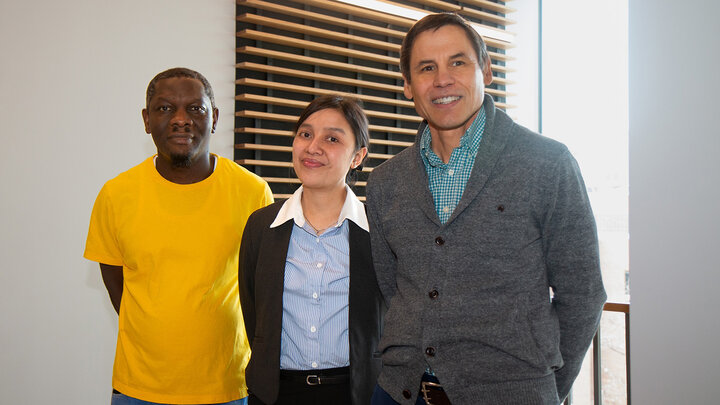Nonreligious people are a fast-growing demographic in the United States. For some atheists, the stigma of their unbelief is compounded by other factors.
Adopting an “unbelieving” worldview is a complex process for people of color, members of the lesbian, gay or bisexual community, and the gender-diverse, such as transgender or nonbinary individuals.
Dena Abbott, assistant professor of counseling psychology, is exploring pathways to atheism by examining commonly held notions of what causes unbelief among demographic groups that are underrepresented in atheism studies.
The project is funded by a grant from the John Templeton Foundation through the Queen’s University Belfast, and is housed at CYFS.
Researchers will recruit about 1,500 U.S.-based atheists from specific demographic groups — Black, Latinx, ex-Muslim and LGBTQ+ — to participate in five theory-based qualitative studies to examine the origins of unbelief among each group. Researchers will then conduct two large-scale quantitative studies — one focused on unbelieving communities of color, the other with LGBTQ+ populations — to learn how people arrived at their atheism.
Participants will be recruited with the help of secular organizations such as Black Nonbelievers and Ex-Muslims of North America, and will provide data through online surveys about their awareness of Christian privilege, experiences of discrimination based on their unbelief and psychological well-being.
Researchers will examine the paths to unbelief from oppression-related stressors, such as racism or Christian dominance, and will also assess the effects of positive social support.
For this project, Abbott said, “atheism” will be more broadly defined to include those who maintain some spirituality but don’t necessarily believe in God.
“Non-religious people are typically excited to participate in studies such as these, because atheists don’t have frequent representation,” said Abbott, a CYFS research affiliate.
Abbott notes that many LGBTQ+ atheists have experienced religious and spiritual abuse, or may have been rejected by faith-based organizations in which they were raised.
Within communities of color, which tend to be religious, atheists often feel as though they don’t belong, she said. They may also feel out of place in large, mainstream atheist groups, which tend to be predominantly white.
“It can be an isolating experience for them,” Abbott said.
Findings will be shared at national conventions, in peer-reviewed publications and elsewhere to advance scientific study of atheism and increase public understanding of the causes of atheism.
“I think there is a real movement right now toward equity for non-religious folks,” Abbott said. “I’m hopeful that it raises public consciousness about these issues when we live in a society in which nearly 30% of the population identifies as non-religious. From my work in health and mental health service, it brings to attention that this is a group we should be thinking about to provide adequate affirming and responsible care.”
Learn more about this project in the CYFS Research Network. This project aligns with the UNL Grand Challenge of health equity.
College of Education and Human Sciences
Educational Psychology
Comprehensive Health & Well-Being




